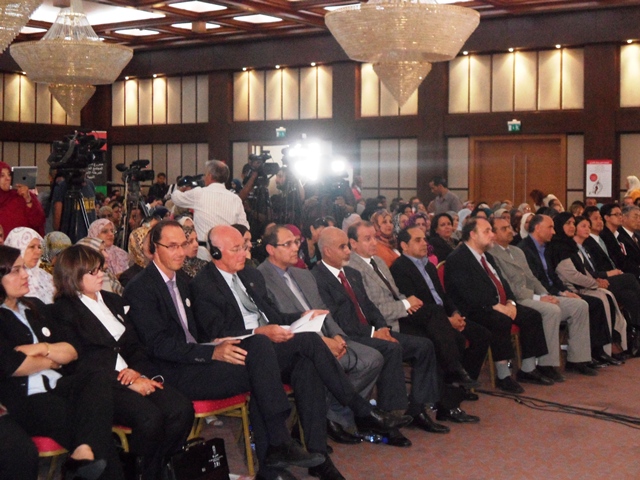Source: Deutsche Welle
This year's Deutsche Welle Blog Awards - "the BOBs" - were presented on Tuesday at the Global Media Forum 2012. The first prize went to an Iranian blogger repeatedly arrested for his critical articles.
Source: Womens News Network
The nation of Zambia has started the process of domesticating legal protective and reporting mechanisms that may increase help to women inside the country revealed the Permanent Secretary of the Ministry of Gender and Development in Zambia, Mr. Edwidge Mutale recently.
Source: Vibe Ghana
Female Genital Mutilation (FGM ) is the practice that involves the complete removal or partial removal or alteration of the genital for non-medical reasons.
Source: Forbes
As a young woman working in public policy in Washington, D.C., who has also lived in Egypt for many years, I impart words of hope for my Egyptian female friends:
Be steadfast:
Source: IPS
When I was still at school I was abducted by the Lord’s Resistance Army, along with 139 other girls,” says Grace Akallo. “I spent seven months in captivity, but I survived, I escaped and I went back home.”
Women’s Major Group Releases Final Statement on the Outcomes of Rio+20: "We believe that the governments of the world have failed women, future generations and our beautiful but fragile planet earth"
In the obstetrics and gynaecology ward of St Mary's Hospital Lacor in northern Uganda's Gulu District, Apilli Kilara lies on the floor under a blood-stained sheet, staring at the ceiling.
Women in Law and Development in Africa (WiLDAF-Ghana), a Pan -African women rights network, and Farmers Organisation Network in Ghana (FONG) have launched a project that seeks to reduce poverty among women farmers in rural areas.
Source: IPS
Four figures bend intently over their work in one corner of the large vegetable garden near the western Niger village of Dioga. Months after the village’s main harvest has been brought in – and eaten up – the irrigated green of the garden is welcome relief in a part of the country where hunger never seems far away.
Source: Libya Herald
The event was held to celebrate the role of women in Libyan society
More than 350 female candidates for the National Conference elections gathered in Tripoli this afternoon for an event to honour the role of women during the revolution. The event, entitled “My Voice for Her”, was also attended by Prime Minister Abdurrahman El-Kib, NTC Deputy Chairman Salim Ganaiyen, UN envoy to Libya Ian Martin and Minister of Health Fatima Hamroush amongst others. More than 500 guests were present in total.
Source: Tripoli Post
The much awaited Libyan election is now finally coming to materialize, hopefully without any change in schedule, on July 7, 2012, the first of its kind in almost half-a century. It is indeed a memorable event… a moment of celebration.
Source: The New Times
The United Nations Conference on Sustainable Development ended at the weekend in Rio de Janeiro, Brazil, with the commitment to establish universal sustainable development goals to create a stronger international architecture needed to support sustainable development.
This year’s International Widows Day has been marked in Bolgatanga with a call on government to enact the legislative instrument on Domestic Violence Act to eliminate violence against women.
In accepting the Nobel Peace Prize last year, Yemeni activist Tawakkol Karman thanked women of the Arab world for her medal. Without their struggle to win equal rights, she would not be there, she said.
Secretary-General Ban Ki-moon has appointed Zainab Hawa Bangura, currently the Minister of Health and Sanitation of Sierra Leone, as his new Special Representative on Sexual Violence in Conflict.
Shortly after her father died, Sia Bona’s husband’s family took over her father’s oil-palm plantation and rice paddies, and drove her and her mother from their home. “I came from riches, but now I am poor,” said the 45-year-old teacher from Koidu town in eastern Sierra Leone.
Strict Sharia, or Islamic religious laws, imposed by the Islamist rebels controlling vast swathes of northern Mali are driving thousands of students out of schools. Dress codes have been imposed, boys and girls are forced to learn separately, and subjects deemed to promote “infidelity” have been struck off the curriculum.
Source: Pambazuka News
The life and work of Thomas Sankara can be taken as a reminder of both the power and potential for human agency to enact transformation.
Source: Libya Herald
In the lead-up to the forthcoming National Assembly elections on 7 July, female candidates will have the support of a national campaign entitled ‘My Voice for Her.’
Source: AllAfrica
The Minister of Works and Transport, Erkki Nghimtina, has called on the youth to condemn acts of violence against women and children, and passion killings.
Addressing youth at the Swapo Party Youth League Ohangwena Regional Conference at Eenhana last Saturday, Nghimtina said it was disappointing that cases of passion killings, particularly among young people, were on the increase.

